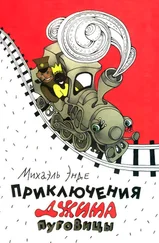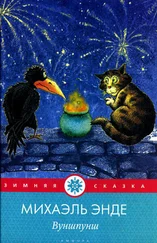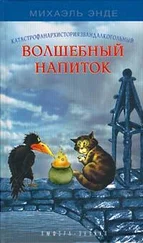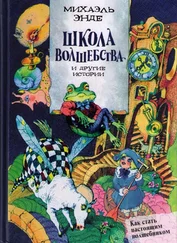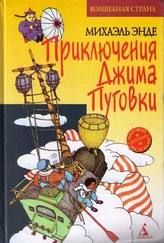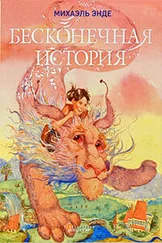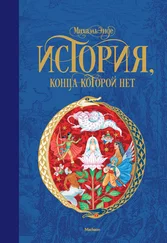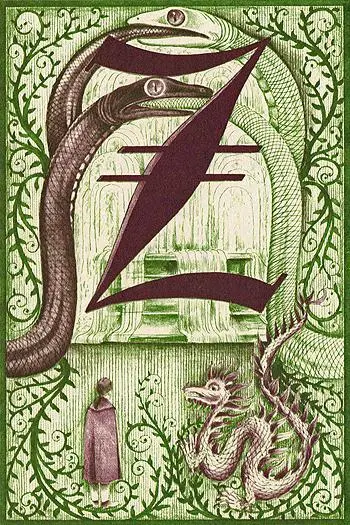 ig-zagging unsteadily, scarcely able to control his feet, the boy who had no name took a few steps toward Atreyu. Then he stopped. Atreyu did nothing, but watched him closely. The wound in his chest was no longer bleeding.
ig-zagging unsteadily, scarcely able to control his feet, the boy who had no name took a few steps toward Atreyu. Then he stopped. Atreyu did nothing, but watched him closely. The wound in his chest was no longer bleeding.
For a long while they faced each other. Neither said a word. It was so still they could hear each other’s breathing.
Slowly the boy without a name reached for the gold chain around his neck and divested himself of AURYN. He bent down and carefully laid the Gem in the snow before Atreyu. As he did so, he took another look at the two snakes, the one light, the other dark, which were biting each other’s tail and formed an oval. Then he let the amulet go.
In that moment AURYN, the golden Gem, became so bright, so radiant that he had to close his eyes as though dazzled by the sun. When he opened them again, he saw that he was in a vaulted building, as large as the vault of the sky. It was built from blocks of golden light. And in the middle of this immeasurable space lay, as big as the ramparts of a town, the two snakes.
Atreyu, Falkor, and the boy without a name stood side by side, near the head of the black snake, which held the white snake’s tail in its jaws. The rigid eye with its vertical pupil was directed at the three of them. Compared to that eye, they were tiny; even the luckdragon seemed no larger than a white caterpillar.
The motionless bodies of the snakes glistened like some unknown metal, the one black as night, the other silvery white. The havoc they could wreak was checked only because they held each other prisoner. If they let each other go, the world would end. That was certain.
But while holding each other fast, they guarded the Water of Life. For in the center of the edifice they encircled there was a great fountain. Its beam danced up and down and in falling created and dispersed thousands of forms far more quickly than the eye could follow. The foaming water burst into a fine mist, in which the golden light was refracted with all the colors of the rainbow. The fountain roared and laughed and rejoiced with a thousand voices.
As though parched with thirst, the boy without a name looked at the water—but how was he to reach it? The snake’s head did not move.
Then Falkor raised his head. His ruby-red eyeballs glittered.
“Do you understand what the Water is saying?” he asked.
“No,” said Atreyu. “I don’t.”
“I don’t know why,” said Falkor. “But I understand perfectly. Maybe because I’m a luckdragon. All the languages of joy are related.”
“What does the Water say?” Atreyu asked.
Falkor listened closely, and slowly repeated what he heard: “I am the Water of Life, Out of myself I grow. The more you drink of me, The fuller I will flow.”
Again he listened awhile. Then he said: “It keeps saying: ‘Drink! Drink! Do what you wish!’ “
“How can we get to it?” Atreyu asked.
“It’s asking us our names,” Falkor reported.
“I’m Atreyu!” Atreyu cried.
“I’m Falkor!” cried Falkor.
The boy without a name was silent.
Atreyu looked at him, then took him by the hand and cried: “He’s Bastian Balthazar Bux!”
“It asks,” Falkor translated, “why he doesn’t speak for himself.”
“He can’t,” said Atreyu. “He has forgotten everything.”
Falkor listened again to the roaring of the fountain.
“Without memory, it says, he cannot come in. The snakes won’t let him through.”
Atreyu replied: “I have stored up everything he told us about himself and his world. I vouch for him.”
Falkor listened.
“It wants to know by what right?”
“I am his friend,” said Atreyu.
Again Falkor listened attentively.
“That may not be acceptable,” he whispered to Atreyu. “Now it’s speaking of your wound. It wants to know how that came about.”
“We were both right,” said Atreyu, “and we were both wrong. But now Bastian has given up AURYN of his own free will.”
Falkor listened and nodded.
“Yes,” he said. “It accepts that. This place is AURYN. We are welcome, it says.”
Atreyu looked up at the enormous golden dome. “Each of us,” he whispered, “has worn it around his neck—you too, Falkor, for a while.”
The luckdragon motioned him to be still and listened again to the sound of the Water. Then he translated:
“AURYN is the door that Bastian has been looking for. He carried it with him from the start. But—it says—the snakes won’t let anything belonging to Fantastica cross the threshold. Bastian must therefore give up everything the Childlike Empress gave him. Otherwise he cannot drink of the Water of Life.”
“But we are in her sign!” cried Atreyu. “Isn’t she herself here?”
“It says that Moon Child’s power ends here. She is the only one who can never set foot in this place. She cannot penetrate to the center of AURYN, because she cannot cast off her own self.”
Atreyu was too bewildered to speak.
“Now,” said Falkor, “it’s asking whether Bastian is ready.”
At that moment the enormous black snake’s head began to move very slowly, though without releasing the white snake’s tail. The gigantic bodies arched until they formed a gate, one half of which was black and the other white.
Atreyu took Bastian by the hand and led him through the terrible gate toward the fountain, which now lay before them in all its grandeur. Falkor followed. As they advanced, one after another of Bastian’s Fantastican gifts fell away from him. The strong, handsome, fearless hero became again the small, fat, timid boy. Even his clothing, which had been reduced almost to rags in the Minroud Mine, vanished and dissolved into nothingness. In the end he stood naked before the great golden bowl, at the center of which the Water of Life leapt high into the air like a crystal tree.
In this last moment, when he no longer possessed any of the Fantastican gifts but had not yet recovered his memory of his own world and himself, he was in a state of utter uncertainty, not knowing which world he belonged to or whether he really existed.
But then he jumped into the crystal-clear water. He splashed and spluttered and let the sparkling rain fall into his mouth. He drank till his thirst was quenched. And joy filled him from head to foot, the joy of living and the joy of being himself. He was newborn. And the best part of it was that he was now the very person he wanted to be. If he had been free to choose, he would have chosen to be no one else. Because now he knew that there were thousands and thousands of forms of joy in the world, but that all were essentially one and the same, namely, the joy of being able to love.
And much later, long after Bastian had returned to his world, in his maturity and even in his old age, this joy never left him entirely. Even in the hardest moments of his life he preserved a lightheartedness that made him smile and that comforted others.
“Atreyu!” he cried out to his friend, who was standing with Falkor at the edge of the great golden bowl. “Come on in! Come and drink! It’s wonderful!”
Atreyu laughed and shook his head.
“No,” he called back. “This time we’re only here to keep you company.”
“This time?” Bastian asked. “What do you mean by that?”
Atreyu exchanged a glance with Falkor. Then he said: “Falkor and I have already been here. We didn’t recognize the place at first, because we were asleep when we were brought here and when we were taken away. But now we remember.”
Bastian came out of the water.
“Now I know who I am,” he said, beaming.
Читать дальше
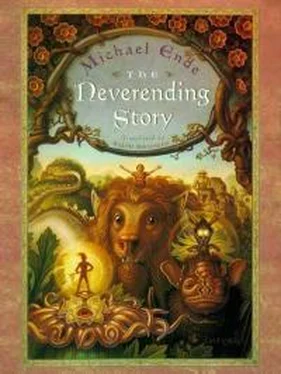
 ig-zagging unsteadily, scarcely able to control his feet, the boy who had no name took a few steps toward Atreyu. Then he stopped. Atreyu did nothing, but watched him closely. The wound in his chest was no longer bleeding.
ig-zagging unsteadily, scarcely able to control his feet, the boy who had no name took a few steps toward Atreyu. Then he stopped. Atreyu did nothing, but watched him closely. The wound in his chest was no longer bleeding.
